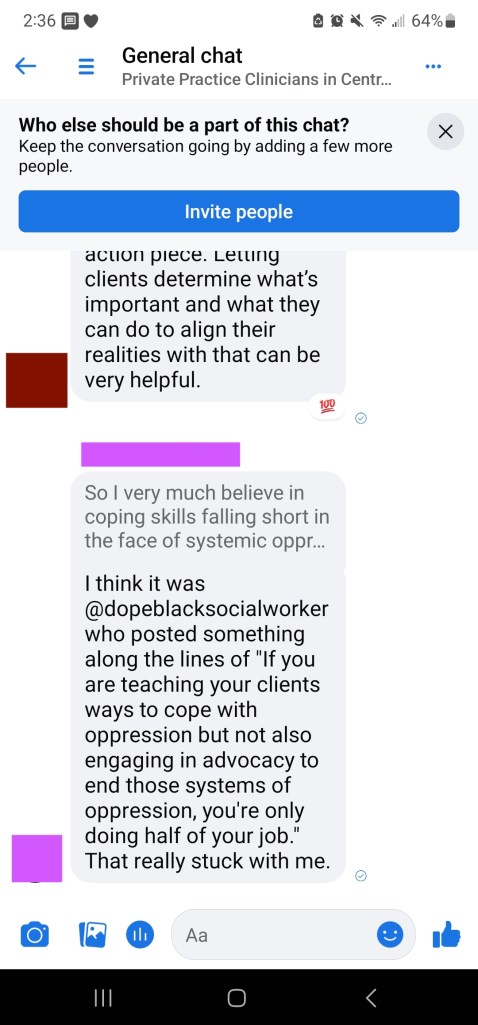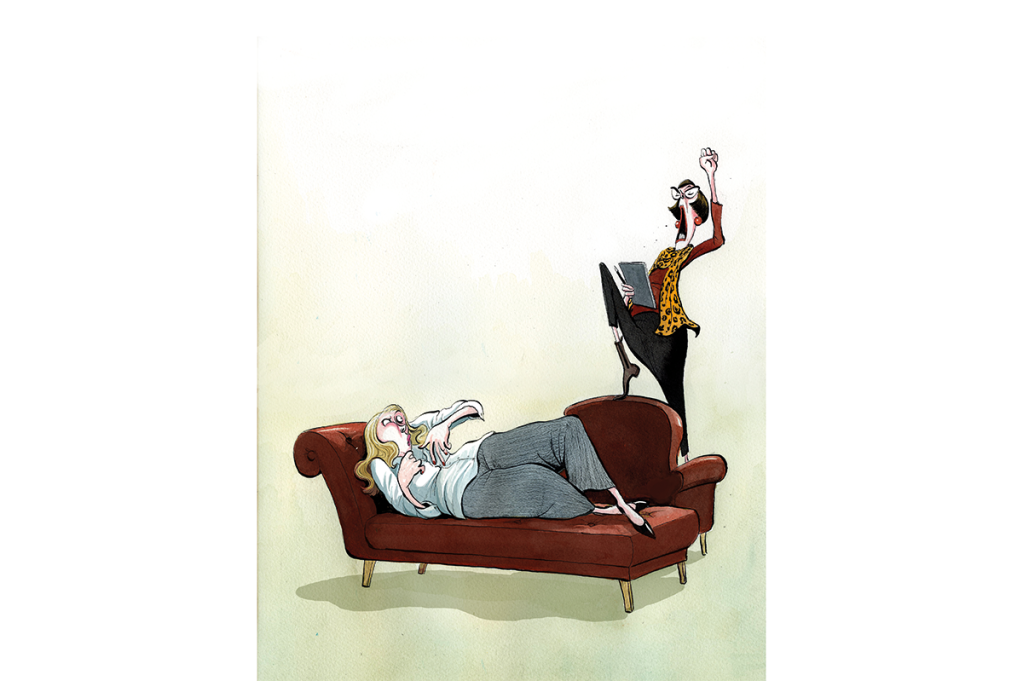Leaked Facebook messages provided exclusively to The Spectator reveal how therapists are using counseling sessions with their patients to push left-wing ideas of race and gender.
Approximately half a dozen licensed mental health professionals in a Facebook group in Indiana had in-depth discussions about how to inject systemic racism into sessions with patients who problems or goals were seemingly unrelated to that topic. The therapists also strategized on how to work with patients who were resistant to the idea that the real source of their issues was societal bigotry or that they might be bigoted themselves.
A large portion of the conversations between the therapists centered on the experience of their white clients and how white supremacy may have colored their perspective on things that had happened to them.
“I explore the ways in which systems of racism, patriarchy, supremacy also impact my white clients historically, interpersonally and transactionally,” one therapist said. “And then inherent issues with the entire mental health system.”
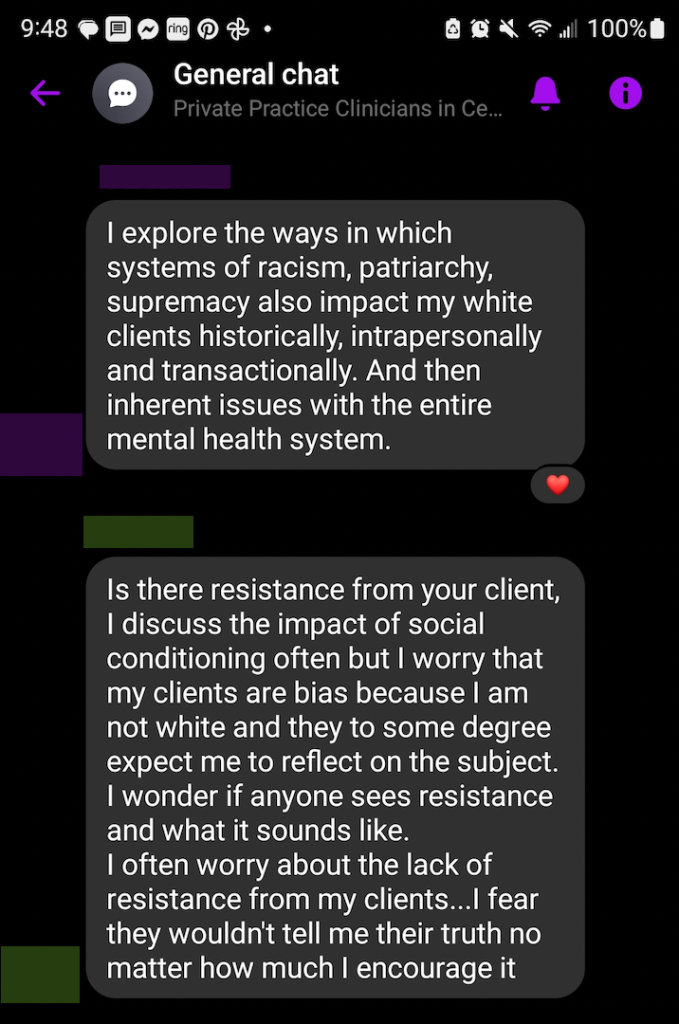
Another explained, “I’m uncertain we know how to treat implicit bias directly. At least I haven’t seen it worded that way. What I do see is plenty of options for anti-racism training.”
“It seems interrogating biases and getting exposed to new info and experiences is what undoes implicit bias,” they added.
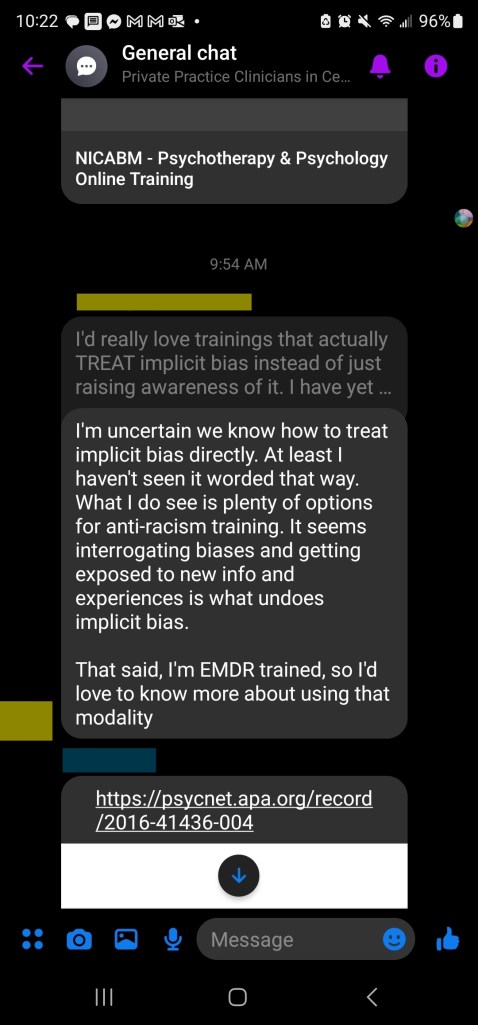
The therapists lamented that many of their patients did not appreciate being accused of racial bias as they tried to work through their personal problems. One therapist complained that her clients in a “less progressive” area were turned off when she used “popular lingo,” such as the term “cisgender,” because it could be considered “woke” or “snowflakey.”
“There is a general reluctance to cop to bias,” she asserted.
Other therapists in the group noted that when they are successful in getting their white patients to acknowledge that they are biased or privileged, they then have to address the accompanying feelings of guilt.
Another area of concern for the group of therapists was how mental health professionals of color could avoid doing too much “race-based labor” for “white folks”, even though their job is ostensibly to create a safe space for patients to discuss areas of concern in their life.
“Even though you’re in a helping position you don’t have to be in a position of needing to do work or have race-based labor for white folks,” a group participant warned a black therapist, adding, “We know that black voices even in professional settings are dismissed.”
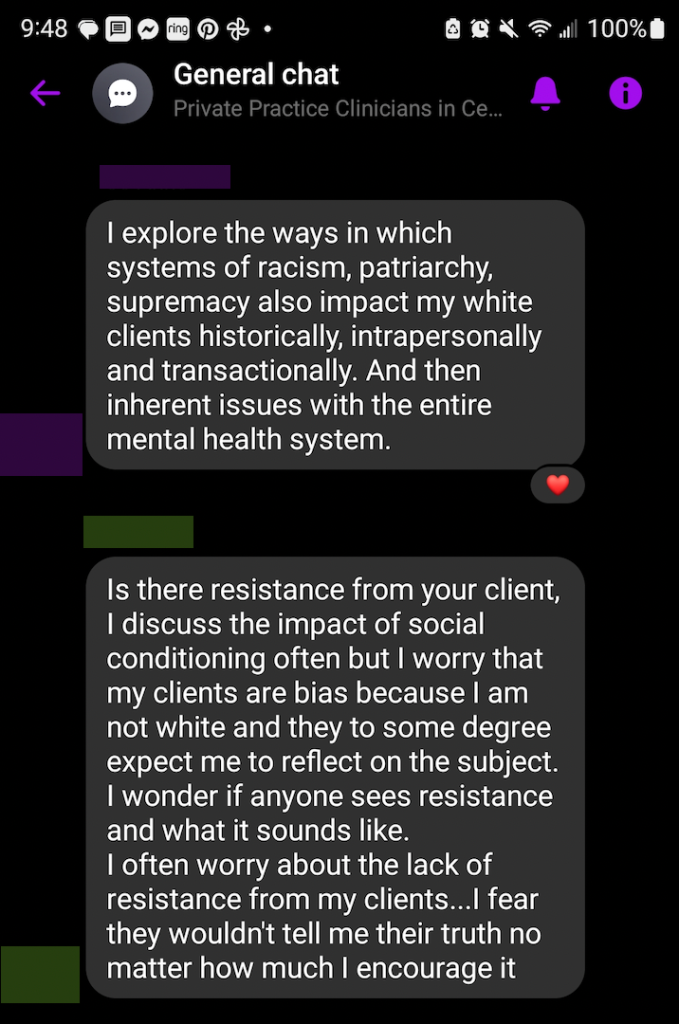
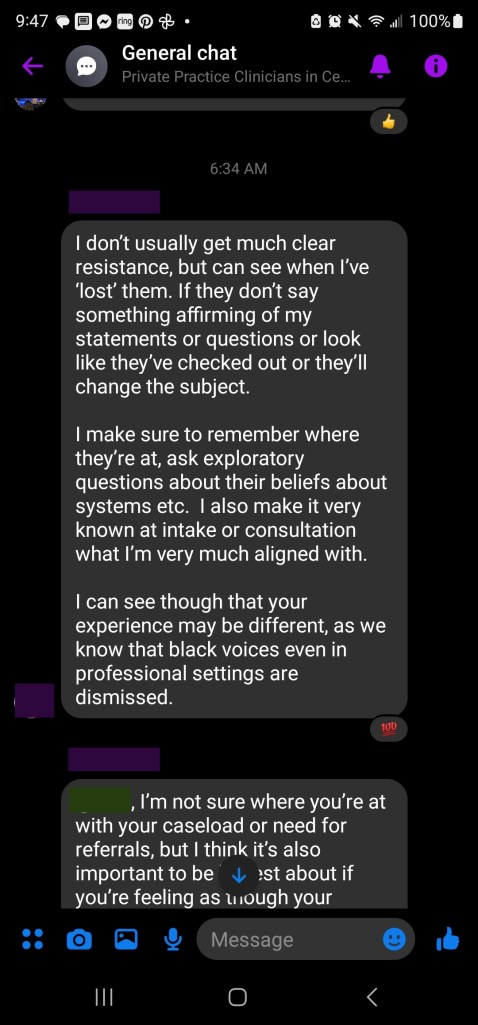
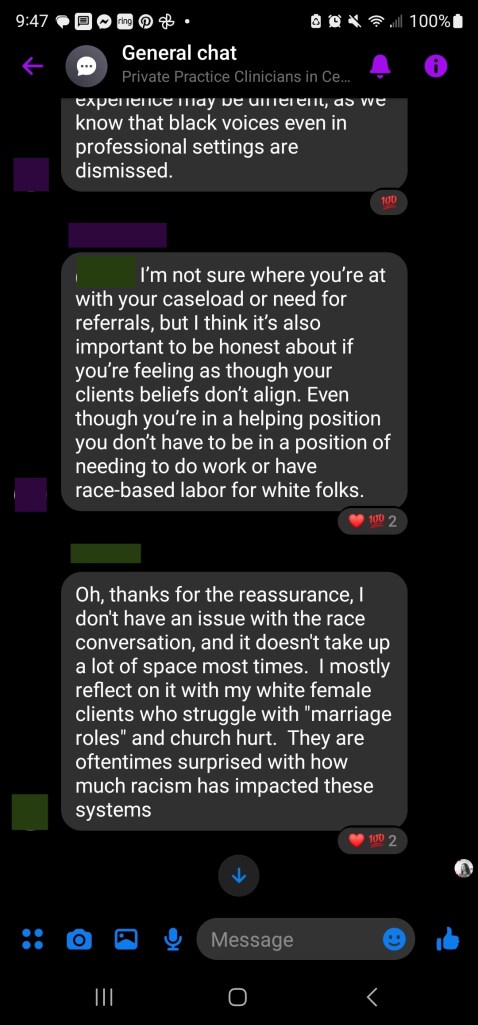
Another with a transgender pride flag as their profile picture said, “I think I would feel protective toward a BIPOC therapist and would want to shield them from any implicit bias that would come up.”
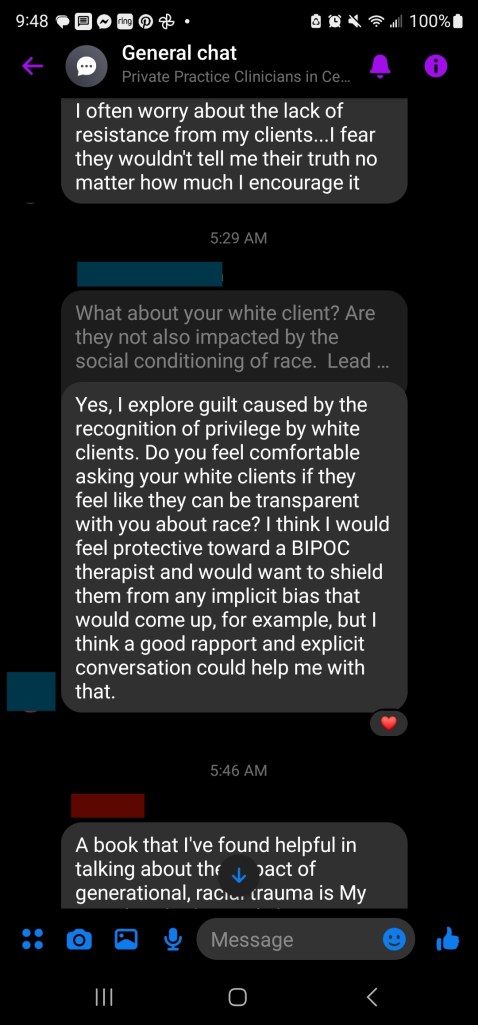
In addition to getting white patients to recognize their inherent bias and protecting black therapists from bias, the mental health counselors debated how to best empower their patients of color to “dismantle” racist systems. Simply acknowledging that they are victims of bigotry and employing coping mechanisms to deal with it is not enough, the therapists reasoned — their patients must also be activists for change because of the current “war” against marginalized people.
One group member said, “I very much believe in coping skills falling short in the face of systemic oppression. And I have been really, really frustrated with our field’s tendency to train us in a way that keeps our patients ‘calm’ about things that are happening to them. Like WTH kind of therapy are we supposed to be doing in a time that feels like war against so many different vulnerable demographics, right?”
“We look at ways to make them feel ‘safer’. But I need to be more explicit about feeling ’empowered’ too,” they explained.
“Really taking a systems perspective approach can really help both parties understand that coping skills often have little affect on the actual oppressive experiences one faces… we have to use our abilities to advocate for change and be an ally to our clients as we help them figure out how they can create tangible change for themselves,” another replied.
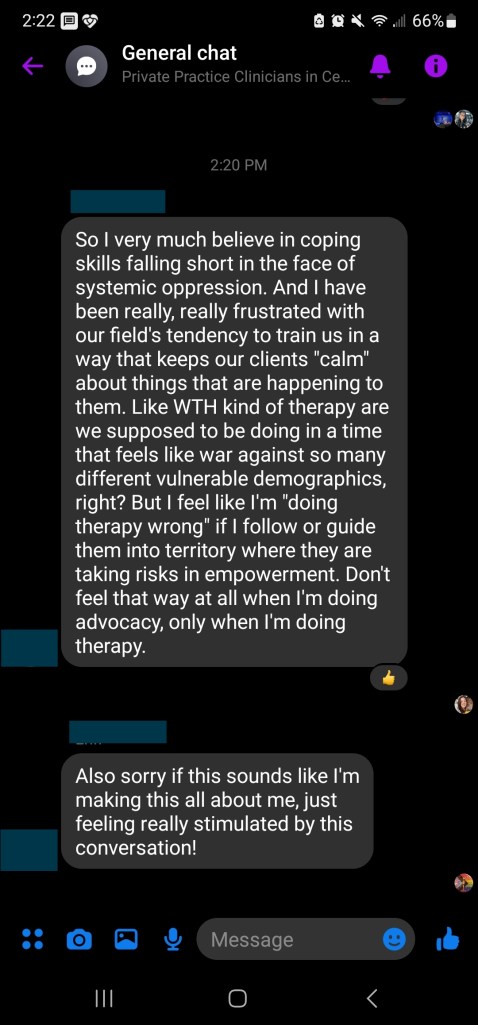
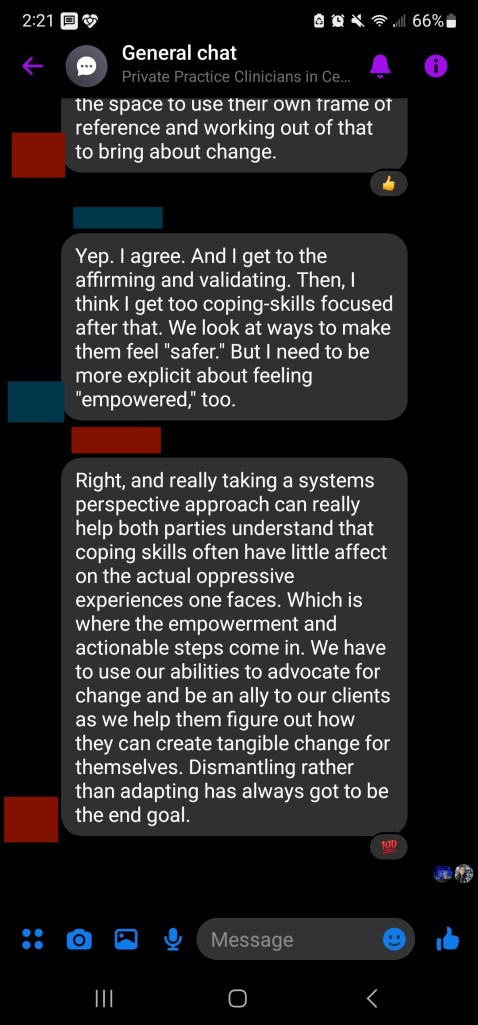
Another therapist chimed in, “I think it was @dopeblacksocialworker who posted something along the lines of ‘If you are teaching your clients ways to cope with oppression but not also engaging in advocacy to end those systems of oppression, you’re only doing half of your job.’”
